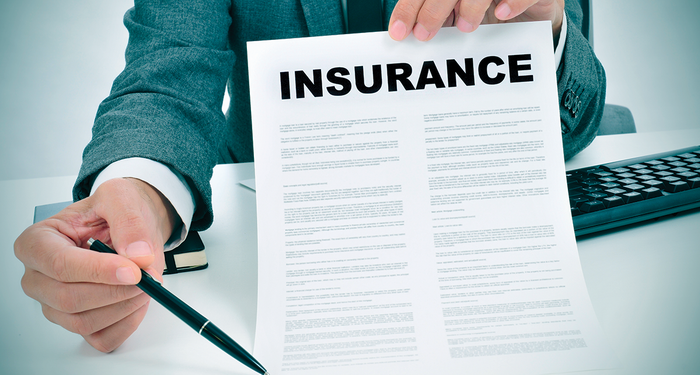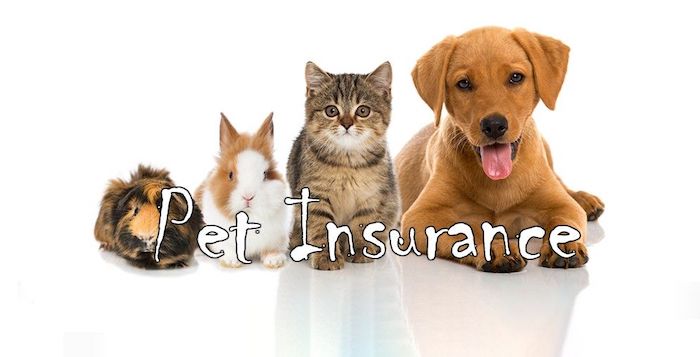As we navigate life, there are many uncertainties that we may encounter. Although we cannot anticipate the future, we can still take steps to prepare for the unexpected by obtaining insurance coverage. With so many types of insurance available, knowing which policies are necessary can be challenging. In this article, we will explore the top 5 types of insurance that everyone should have to safeguard their financial well-being.
1. Health Insurance
Health insurance is a crucial type that can help you cover your medical expenses. Health insurance offers financial protection against unexpected medical expenses resulting from illnesses, injuries, or accidents. Here are some essential facts to keep in mind about health insurance:
What is health insurance, and how does it work?
A health insurance policy is a legal agreement between an individual and an insurance company, which provides coverage for some or all of the individual’s healthcare costs. The insurer agrees to pay for covered medical services and treatments, such as doctor visits, hospitalization, prescription drugs, and preventive care, in exchange for a monthly premium. The amount of coverage you receive depends on the plan you choose.
The benefits of having health insurance
Having health insurance provides many benefits, such as:
- Financial protection: Health insurance can help protect you from high medical bills, which can be financially devastating without coverage.
- Access to healthcare: With health insurance, you can access medical care and treatments without worrying about the cost.
- Preventive care: Health insurance policies often include preventive care benefits, which may include regular check-ups, immunizations, and health screenings, aimed at promoting good health and detecting health issues early.
The types of health insurance available
There are several types of health insurance plans available, including:
- HMO (Health Maintenance Organization): TTypically, this type of plan mandates that you select a primary care physician (PCP) and obtain referrals from them to visit specialists. It usually has lower out-of-pocket costs but may have more limited provider networks.
- PPO (Preferred Provider Organization): This plan allows you to see any provider in the network without a referral. It usually has higher out-of-pocket costs but may have more provider choices.
- EPO (Exclusive Provider Organization): A hybrid of HMO and PPO plans, this type of policy combines features of both. It typically has lower out-of-pocket costs than a PPO but may have a more limited provider network.
- POS (Point of Service): This type of plan combines features of both HMO and PPO plans. It typically requires you to choose a PCP and get referrals to see specialists but may allow you to see providers outside of the network for a higher cost.
How to choose the right health insurance plan for you
Selecting an appropriate health insurance plan can be a daunting task, but the following tips can assist you in making a well-informed choice:
- Consider your healthcare needs: Think about the services and treatments you may need in the future and choose a plan that covers those.
- Compare costs: Look at the monthly premium, deductible, copayments, and coinsurance to determine which plan offers the best value.
- Check the provider network: Ensure your preferred healthcare providers are in the plan’s network.
Understand the benefits: It is important to carefully review the policy to comprehend what is included and excluded.
FAQs:
Why do I need health insurance?
Health insurance provides financial protection against the high cost of medical care. Without health insurance, you could be responsible for paying for all medical expenses out of pocket, which can be financially devastating. Also, health insurance gives you access to healthcare services and preventive care that can help you maintain good health.
Can I still get health insurance if I have a pre-existing condition?
As per the Affordable Care Act (ACA), insurance providers are not allowed to refuse coverage or impose higher premiums based on pre-existing medical conditions. This means you can still get health insurance even if you have a pre-existing condition, such as diabetes or heart disease.
What is a deductible, and how does it affect my health insurance?
Before your health insurance starts covering your medical expenses, you are required to pay a deductible from your own pocket. For example, if you have a $1,000 deductible and your medical bills total $2,000, you will be responsible for paying the first $1,000, and your insurance will cover the remaining $1,000. Opting for a higher deductible implies that you will have a lower monthly premium, but you must bear a larger portion of your healthcare costs before your insurance coverage begins.
2. Auto Insurance
Auto insurance provides coverage for the expenses related to damages to your vehicle or other cars involved in an accident, as well as theft-related losses. It is a legal requirement in most states to have auto insurance, and it can provide financial protection and peace of mind while driving. Here are some essential things you should know about auto insurance:
What exactly is auto insurance, and how does it operate?
Auto insurance is a legal agreement between you and an insurance company that provides coverage for expenses related to damage to your vehicle or other cars involved in a collision, as well as theft or other covered events. In exchange for a monthly premium, the insurer undertakes to pay for covered losses, such as damage to your car, injuries to others, and property damage. The level of coverage you receive is determined by the policy you select.
The benefits of having auto insurance
Having auto insurance provides many benefits, such as:
- Financial protection: Auto insurance can help protect you from the high cost of car repairs, medical bills, and other expenses that can result from an accident.
- Legal protection: Most states require drivers to have auto insurance, and driving without it can result in legal penalties.
- Peace of mind: By having auto insurance, you can drive confidently, knowing that you are safeguarded in case of an accident or any other covered event.
The types of auto insurance coverage available
Different types of auto insurance coverage are available, which include:
- Liability insurance: This insurance type provides coverage for damages to other individuals’ property and injuries they sustain if you are responsible for an accident.
- Collision insurance: This type of insurance covers damages to your car in the event of a collision with another vehicle or object.
- Comprehensive insurance: This type of insurance covers damages to your car resulting from non-collision events, such as theft, fire, or natural disasters.
- Personal injury protection (PIP) insurance: This insurance covers medical expenses and lost wages for both you and your passengers in the event of an accident.
How to choose the right auto insurance plan for you
Choosing the right auto insurance plan can be overwhelming, but here are some tips to help you make an informed decision:
- Consider your coverage needs: Consider the type of coverage you need based on your driving habits, car value, and budget.
- Compare costs: Look at the monthly premium, deductible, and coverage limits to determine which plan offers the best value.
- Check the insurer’s reputation: Read reviews and check the insurer’s financial strength rating to ensure they are reliable and financially stable.
Understand the policy terms: It is important to carefully review the policy to comprehend what is included and excluded.
FAQs:
Do I need auto insurance if I don’t own a car?
You may not need auto insurance if you don’t own a car. However, if you frequently rent cars or borrow other people’s cars, you should consider getting a non-owner car insurance policy. This policy provides liability coverage for you when you are driving a car you don’t own.
What is the difference between liability and collision insurance?
Liability insurance covers damage to other people’s property and injuries to others in an accident where you are at fault. Collision insurance, on the other hand, covers damage to your car in the event of a collision with another car or object. Both types of insurance are essential, but liability insurance is required by law in most states.
Will my auto insurance cover rental cars?
It depends on your insurance policy. Some auto insurance policies include rental car coverage, while others do not. If your policy does not include rental car coverage, you may be able to purchase it separately from the rental car company. Read your policy carefully or contact your insurance provider for coverage options.
3. Homeowners or Renter’s Insurance
Homeowners’ or renters’ insurance provides financial protection for your home, personal property, and liability in the event of damage, theft, or other covered events. Owning a home or renting an apartment comes with its own set of risks and uncertainties. However, having homeowners or renters insurance can help you protect your assets and provide peace of mind. Here are some essential things you should know about homeowners or renters insurance:
What are homeowners or renters insurance, and how does it work?
Homeowners’ or renter’s insurance covers the cost of damage to your home or personal property in the event of a covered event, such as a fire, theft, or natural disaster. It also provides liability coverage, protecting you from financial damages if someone is injured on your property. The amount of coverage you receive depends on the plan you choose.
The benefits of having homeowners or renters insurance
Having homeowners or renters insurance provides many benefits, such as:
- Financial protection: Homeowners or renter’s insurance can help protect you from the high cost of repairing or replacing your home or personal property in the event of a covered event.
- Liability protection: Homeowners or renter’s insurance can protect you from financial damages if someone is injured on your property.
- Peace of mind: With homeowners or renters insurance, you can know that you are protected in the event of a covered event.
The types of homeowners or renters insurance coverage available
There are various types of insurance coverage available for homeowners or renters, which include:
- Dwelling coverage: This coverage safeguards the structure of your home and any attached structures, such as a garage or shed.
- Personal property coverage: This coverage protects your personal belongings, such as furniture, clothing, and electronics, in case of covered events such as fire, theft, or vandalism.
- Liability coverage: This coverage provides financial protection if you are found responsible for injuring someone or damaging someone’s property. It can help cover legal fees, medical bills, and other related expenses.
- Additional living expenses coverage: This type of coverage helps cover the cost of living expenses, such as hotel bills if you cannot live in your home due to a covered event.
How to choose the right homeowners or renters insurance plan for you
Choosing the right homeowners or renters insurance plan can be overwhelming, but here are some tips to help you make an informed decision:
- Consider your coverage needs: When choosing homeowners or renters insurance, it is essential to consider your coverage needs. You should evaluate the value of your home or personal property and determine what type of coverage suits your budget.
- Compare costs: Look at the monthly premium, deductible, and coverage limits to determine which plan offers the best value.
- Check the insurer’s reputation: Read reviews and check the insurer’s financial strength rating to ensure they are reliable and financially stable.
Understand the policy terms: It is important to carefully review the policy to comprehend what is included and excluded.
FAQs:
What does homeowners’ or renter’s insurance cover?
Homeowners’ or renter’s insurance covers the cost of damage to your home or personal property in the event of a covered event, such as a fire, theft, or natural disaster. It also provides liability coverage, protecting you from financial damages if someone is injured on your property.
What is the difference between homeowners’ and renters’ insurance?
Homeowners insurance is tailored for individuals who own their homes, while renters insurance is designed for individuals who are renting their homes or apartments. Homeowners insurance provides coverage for both the structure of your home and your personal property, while renters insurance only covers your personal property.
Is flood damage covered by homeowners’ or renters’ insurance?
Standard homeowners’ or renters’ insurance policies typically do not provide coverage for flood damage. To protect your home and personal property from flood damage, you may need to purchase a separate flood insurance policy. It is important to speak with your insurance provider to understand your coverage options and determine if flood insurance is necessary for your situation.
4. Life Insurance
Life insurance is a financial product that offers support to your loved ones in the event of your death. It can provide funds to cover expenses like funeral costs, outstanding debts, and the ongoing financial needs of your dependents.
What is life insurance, and how does it work?
Life insurance is an agreement between an individual and an insurance company, wherein the individual pays regular premiums, and in return, the insurance company provides a death benefit to the beneficiaries of the policy in the event of the individual’s death. There are primarily two types of life insurance policies – term life insurance and permanent life insurance. While term life insurance provides coverage for a specific period, permanent life insurance offers coverage for the individual’s entire life.
The benefits of having life insurance
Having life insurance provides many benefits, such as:
- Financial security for your loved ones: Life insurance can provide financial support to your beneficiaries in the event of your death, helping cover expenses like funeral costs, outstanding debts, and living expenses.
- Peace of mind: With life insurance, you can know that your loved ones are financially protected.
- Tax benefits: The death benefit payout from a life insurance policy is typically tax-free.
How to choose the right life insurance plan for you
Choosing the right life insurance plan can be overwhelming, but here are some tips to help you make an informed decision:
- Consider your coverage needs: Think about the amount of coverage you need based on your financial obligations and the needs of your beneficiaries.
- Compare costs: Look at the premiums and benefits different insurance providers offer to determine which plan offers the best value.
- Understand the policy terms: It is important to carefully review the policy to comprehend what is included and excluded.as well as any exclusions or limitations.
When should you consider getting life insurance?
If you have dependents who rely on your income, outstanding debts or financial obligations, or want to provide financial support to your loved ones after your death, it is worth considering getting life insurance. Life insurance is also a good option if you want to leave a legacy or provide a charitable donation upon your death.
FAQs:
What is the difference between term life insurance and permanent life insurance?
Term life insurance provides coverage for a specific period, typically ranging from 10 to 30 years. Your beneficiaries will receive a death benefit payout if you die during the policy term. On the other hand, permanent life insurance provides coverage for your entire life and includes an investment component that builds cash value over time.
How much life insurance coverage do I need?
The amount of life insurance coverage you need will depend on your financial obligations and the needs of your beneficiaries. Consider factors such as your outstanding debts, mortgage, living expenses, and future education expenses for your children when determining your coverage needs.
Can I change my life insurance policy after I purchase it?
Yes, you can change your life insurance policy after purchasing it. For example, you may be able to increase or decrease your coverage, change your beneficiaries, or switch from a term life insurance policy to a permanent life insurance policy. Check with your insurance provider for options and associated fees or restrictions.
5. Disability Insurance
Disability insurance is a type of insurance that provides income replacement if you become unable to work due to an injury or illness. It can help you maintain your financial stability and cover your living expenses if you are unable to earn an income. Here are some important things you should know about disability insurance:
What is disability insurance, and how does it work?
Disability insurance is a contract between you and an insurance provider in which you pay regular premiums in exchange for a portion of your income being paid out to you if you become disabled and unable to work. Disability insurance can be short-term or long-term, depending on the length of time you are unable to work.
The benefits of having disability insurance
Having disability insurance provides many benefits, such as:
- Income replacement: If you experience an injury or illness that renders you unable to work, disability insurance can assist in replacing a portion of your income.
- Financial stability: Disability insurance can help you maintain your financial stability and cover your living expenses in the event of a disability.
- Peace of mind: With disability insurance, you can have peace of mind knowing that you are financially protected if you become disabled.
How to choose the right disability insurance plan for you
Choosing the right disability insurance plan can be overwhelming, but here are some tips to help you make an informed decision:
- Consider your coverage needs: Think about the amount of coverage you need based on your income and the needs of your dependents.
- Compare costs: Look at the premiums and benefits offered by different insurance providers to determine which plan offers the best value.
- Understand the policy terms: Carefully review the policy to comprehend the coverage, exclusions, and limitations of the policy.
When should you consider getting disability insurance?
You should consider getting disability insurance if you rely on your income to cover your living expenses and support your dependents. Disability insurance is especially important if you work in a high-risk occupation or have a medical history that puts you at a higher risk of becoming disabled.
FAQs:
What is the difference between short-term disability insurance and long-term disability insurance?
Short-term disability insurance provides coverage for a shorter period of time, typically a few months up to a year, and may have a waiting period before benefits begin. Long-term disability insurance provides coverage for a longer period of time, usually two years or more, and may have a longer waiting period before benefits begin.
Can I get disability insurance if I have a pre-existing condition?
It depends on the insurance provider and the specific condition. Some insurance providers may exclude coverage for pre-existing conditions, while others may offer coverage with certain restrictions or higher premiums. Be sure to check with your insurance provider to understand their policy regarding pre-existing conditions.
How much does disability insurance typically cost?
The cost of disability insurance varies depending on several factors, such as your age, occupation, health history, and the amount of coverage you need. Generally, premiums for disability insurance can range from 1% to 3% of your income. It’s important to shop around and compare quotes from different insurance providers to find the best coverage for your needs and budget.




